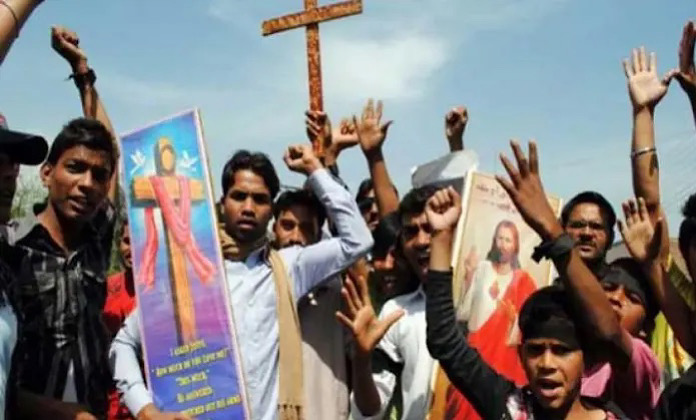Supreme Court questions the constitutionality of Uttar Pradesh conversion law
The 2021 legislation, which imposes up to 10 years for converting to another faith, has come under scrutiny. Some of the law’s provisions violate personal rights and privacy. For the bishop of Lucknow, the rulings are a “welcome relief and a sign of hope for the Christian community”, but all "unconstitutional" provisions must be struck down.
Delhi (AsiaNews) – India’s Supreme Court has raised concerns about the constitutionality of certain provisions of the Uttar Pradesh Prohibition of Unlawful Conversion of Religion Act, 2021.
The anti-conversion law punishes conversion to another faith through misinformation, the offer of compensation or other gain, force, and coercion, with a penalty of up to 10 years in prison.
The justices note that the law presents problematic issues, especially with regard to an individual's right to adopt another faith, effectively limiting their choice.
Furthermore, for the court, the rights to freedom of thought, expression, belief, faith, and worship must be preserved, as these principles embody and express the secular nature of the country.
“The recent judgements by the Supreme Court are a welcome relief and a sign of hope for the Christian community. But how many can afford to reach the Apex Court for justice?” wonders Bishop Gerald Mathias of Lucknow, speaking to AsiaNews.
For the prelate, most members of the clergy and lay people “falsely accused of illegal conversion will not be able” to do so and could “languish in jails for months and years”.
Instead, “the Supreme Court should strike down all provisions and clauses or sections in anti-conversion laws in the country that are unconstitutional. Otherwise, the misuse of these laws will continue as will atrocities against Christians and Muslims. I hope and pray that the recent judgements and observations of the Supreme Court will serve as a deterrent”.
The Supreme Court bench, composed of justices J B Pardiwala and Manoj Misra, made some significant observations vis-à-vis the law’s constitutionality; in their opinion, by requiring a declaration before the district magistrate on conversion, the law entails a broad interference by the State in personal matters.
What is more, district magistrates are legally required to initiate a police investigation, which must vet the steps that led to the conversion itself, while making public a converted person's personal data may constitute a violation of privacy.
During the hearing, the justices noted that parts of the 2021 law violate the fundamental rights guaranteed by Part III of the Constitution, specifically Article 25.
Section 8 of the Uttar Pradesh law includes pre- and post-conversion procedures. In the first phase, individuals must declare at least 60 days in advance before the competent authority that there was no coercion, undue influence, or solicitation.
They must also provide a one month's notice to the same authority that they plan to convert, while the latter will then instruct the police to conduct the appropriate inquiry.
If the person wishing to convert fails to submit a pre-conversion declaration, they risk a prison sentence of up to three years and a minimum fine of 10,000 rupees (US$ 115).
Once the conversion has taken place, the person is required to resubmit a declaration within 60 days, upon which the competent authority will display a copy of the declaration on their noticeboard.
Details that must be disclosed in the declaration include permanent address, place of residence, nature of the process undergone, etc. The convert is required to appear within 21 days of submitting the declaration to establish their identity and confirm its contents.
All of these elements risk undermining personal freedom and privacy, in direct violation of the constitution on which India was founded.
Lastly, the Court stressed that the term "secular" used in the preamble of the constitution is an intrinsic part of the document.
24/10/2019 17:56
12/01/2021 16:35
26/02/2021 12:32
07/01/2021 17:01







.png)










